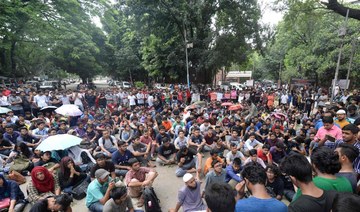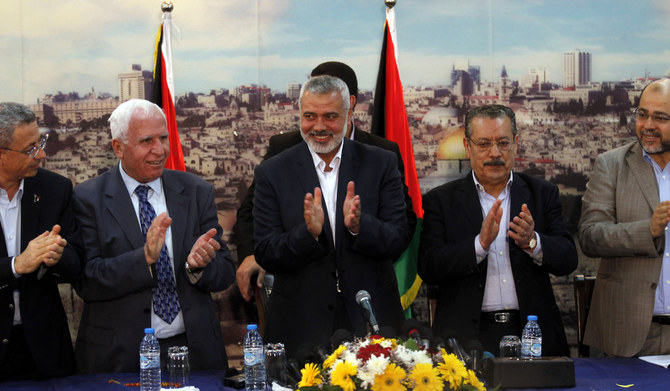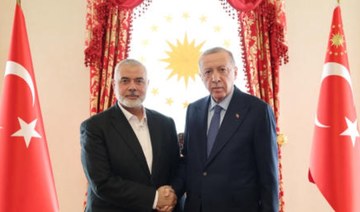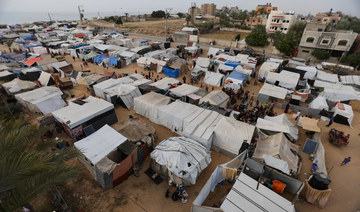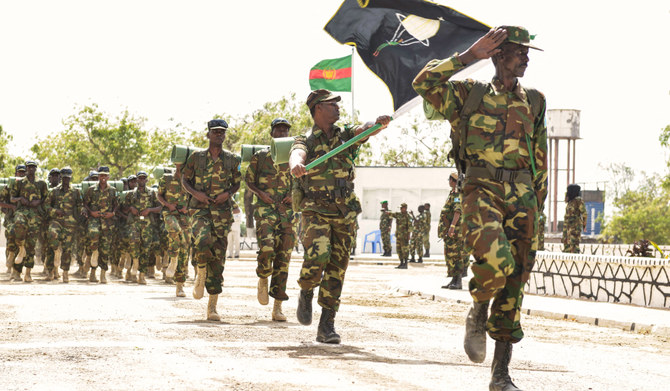DHAKA: The time was 2:30 p.m. Small knots of children were loitering around the main street in the Mirpur area of the Bangladeshi capital Dhaka. Suddenly their faces lit up as a brightly painted rickshaw van appeared. The vehicle, bearing the words “Bidyanondo,” was stacked with food packets.
About 60 children from a nearby slum quickly formed a queue, each holding a one-taka coin that would enable them to buy their day’s lunch. For most, this was the only proper meal they could afford in the entire day.
“I come here every day so that my two granddaughters, Raina and Ranisa, don’t go hungry,” said Rajia Begum, 51, as she collected two food packets for the twins.

Volunteers distribute ‘one taka meal’ boxes to children in Dhaka’s Mirpur district. (Supplied photo)
“My son, who is a driver by profession, does not make enough to feed all six members of our family. So the children wait for their Bidyanondo meal every afternoon.”
A pioneer of the cheap-meal concept, Bidyanondo charges children under 12 as well as men and women older than 60 a token one taka ($1 is equivalent to 84 Bangladeshi taka) for each meal.
The volunteer organization, whose mission is “to foster philanthropy domestically and internationally by designing innovative programs,” spends 28 Bangladeshi taka to prepare the meal it gives away for one taka.
INNUMBERS
370,000 - Bidyanondo’s Facebook follower count
2,000 - Daily recipients of a Bidyanondo meal
84 - Bangladeshi taka equivalent to $1
300 - Total number of Bidyanondo volunteers
The “one taka meal” is the brainchild of 38-year-old Kishore Kumar Das, a Peru-based Bangladeshi who said it was his life’s dream to feed the poor in a way that, unlike begging, did not diminish their sense of self-worth.
“As a child, I had to face extreme poverty because my father could not manage to feed seven members of his family. I used to walk several miles to find free meals distributed at temples,” said Das, who is also the chief of volunteers at Bidyanondo.
“People from different corners of society take the same meal in a temple irrespective of class or caste. This unique idea inspired me to do something in the same way for underprivileged members of Bangladeshi society.”
Besides Dhaka, Bidyanondo — Bengali for “Learn for Fun” — operates the “one taka meal” program in four Bangladeshi cities: Chattogram, Narayanganj, Rajshahi and Rangpur. It also provides food, accommodation, education and medical care to about 300 residents of five orphanages.
“Charging one taka for a single meal is a symbolic approach through which we want to create a sense of ownership in the recipient’s mind,” said Salaman Khan, coordinator of Bidyanonodo’s Dhaka branch. “We want to convey a feeling that people are buying the food from us, not begging for it.”
Bidyanondo’s journey began in June 2016 when it began feeding 30 children in need in Chattogram, in southeastern Bangladesh.
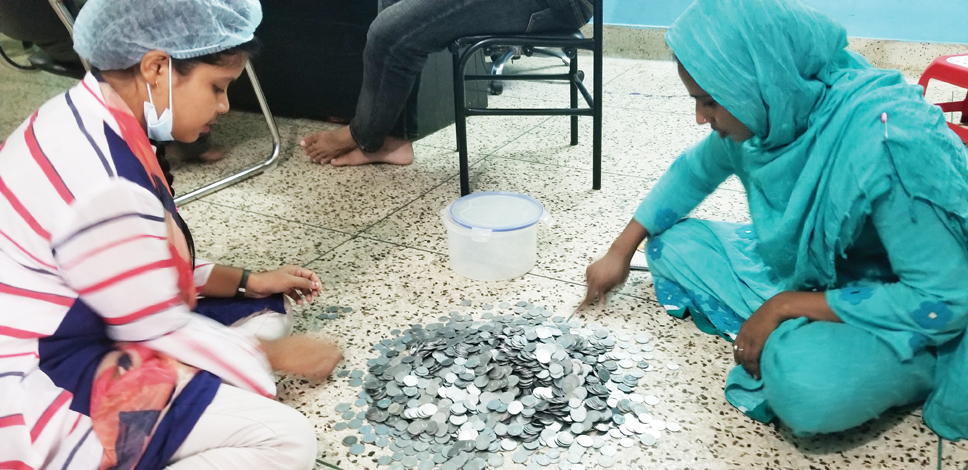
Meals and food packets are prepared at the Bidyanondo Foundation office for distribution among Dhaka’s needy.
(AN photo by Shehab Sumon, Arab News)
Within a year, the group was providing food to 800 needy people every day. By 2018, the number of recipients had risen to 1,200. This year, almost 2,000 people every day across Bangladesh are receiving at least one square meal a day, thanks to Bidyanondo’s determination to “relieve the pain of hunger.”
“From cooking to distribution of food, we do everything by ourselves,” Khan told Arab News. “We have a special team of five or six members who cook. All of them are doing the job as volunteers.
“We operate our food program 365 days a year. Our volunteers work even on Eid days to feed needy people.”
Bidyanondo relies on crowdfunding for funds to support its programs.
“We have a Facebook group through which we organize the funding,” Khan said. “Bidyanondo has more than 370,000 followers on its Facebook page. All our benefactors are Bangladeshi and most prefer to remain unidentified.”
In the past three years, Bidyanondo has distributed more than 2.5 million meal boxes to children and older people in need. It has a workforce of 300 registered and non-registered volunteers across the country comprised mainly of students.
The 40 full-time staff members are stationed in the nonprofit’s offices across Bangladesh. A small number of housewives also volunteer at local branches of Bidyanondo.
The idea of selling cheap meals has spread to other countries through Bidyanondo’s network of overseas Bangladeshi volunteers. Das said that pilot programs are being tried out in Peru, Italy, Turkey, Nepal and India.
“We want Bidyanondo to inspire others to commit some of their time and energy to social causes,” Das said. “If everyone does their bit, there will be no huge disparity in society.”
Among those doing their bit is Asma Akter, a 31-year-old physician employed in a government-run general hospital in Manikgonj, 40 km from Dhaka. On her days off, she turns up at Bidyanondo’s local branch to offer free medical consultations to the needy.
“I have my full-time government job for earning money. But I can’t have mental peace with the money,” she said. “Bidyanondo is a platform where I can look after the people who need my support the most.”
Akter added: “Words cannot express the kind of joy I get from performing this social service. It is a very good example of teamwork. Every day I learn from my colleagues here how to spend my time in the service of others.”
Back in Dhaka’s Mirpur district, among the children waiting to collect a meal box that afternoon was eight-year-old Mohammad Solaiman. “My father is a day laborer and mother works as domestic help,” he said.
“At noon they both are busy at work. With my two brothers, I collect food from the Bidyanondo rickshaw van every day. It is very convenient for us.”





